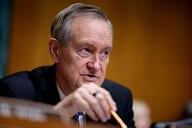You have /5 articles left.
Sign up for a free account or log in.
Janni Aragon: The coolest thing to see on campus: Our campus had a pilot project for Course Spaces, our next version of Moodle. I was part of this and it was great to have a chance to be a beta tester of the new learning management platform. My classes also moved on to the Online Academic Community and this was a great way to host the students' blogs and interact more with faculty and others across campus. I was party to lots of silo jumping and I loved it! I'm hoping that we can break down some of the moats and build the online community on campus even more in 2014.
Mary Churchill: Two things - one, we have moved from a traditional core curriculum requirement based upon disciplines to a new general education requirement based upon core competencies. The best thing about this move has been the engagement and excitement of the entire campus. I feel really privileged to be a witness to some fantastic debates on issues such as whether or not a new course should count in a category such as World Cultures-it has forced us all to deal with the strengths and limitations of our disciplines and to put the student at the center of what we are doing. Second - the One Stop Student Services Center, bringing together front line folks from the registrar, bursar, etc. Like Janni, I hope to continue to break down silos through innovations like the new gen ed and the one stop - these initiatives bring together creative ideas in exciting new ways and get us enthused about the work we do.
Rosalie Arcala Hall: The University Council approved the shift in our academic calendar from a June to an August start for the first semester beginning 2014. This is the first of a series of reforms intended to bring our academics closer to the ASEAN standard. Another set of reforms in the coming years (revamp of the General Education framework and courses; review of academic programs) will prepare us for 2016 come admission of the first K-12 graduates. I could feel the coming of a new era for my University-- the shifting from the old guards of parochial-regional orientation to one that aims for greater homogeneity across programs offered by all autonomous units. The bar is now raised not only to bring my erstwhile peripheral campus at par with UP Diliman, Manila and Los Banos; but also to global prominence. Research, graduate programs, faculty with PhDs, ISI publication-- these are four anchor points that will define where we are heading in the next few years.
Janine Utell: Collaboration has been a big feature of my work on campus this year. We’ve gotten a lot done working together on university-wide assessment, designing and implementing a common experience for first-year students; the conversations about what we’re doing and how we can do it better have been really invigorating. I’ve been working to facilitate this at the departmental level, too, and the results have been exciting (a new theater group, for instance). We’ve been talking about the role of contingent/non-tenure faculty on our campus, as well, and that broader conversation -- and results that are meaningful and lasting for those colleagues -- are what I hope to see furthered and continued in 2014, at my institution and beyond.
Lee Skallerup Bessette: This isn’t “new” on my campus, but since I only just found out about it in 2013 (and am subsequently participating in it), I’m going to list it here. We have something called the President’s Leadership Academy, open to all faculty (including non-tenure-track faculty) and staff (from any level). The purpose is to expose the group to the larger inner-workings of our university, and is modeled after the ACE Fellowships to include case-studies and an internship (mine will be with the VP of Development). We have visited the state capital and various stakeholder groups, as well as read leadership books, had guest speakers, and in the new year, we will be visiting another institution to see how their campus operates. The purpose is to identify future leaders within the university, but I’ve enjoyed working with and learning from people from across campus, from all of the various positions one can hold. I also appreciate that this opportunity was made available to me, a non-tenure-track faculty member. What I would like to see are more opportunities like this for non-TT faculty to expand their skill set, but also the opportunity to show what they are capable of to those involved in the upper-echelon of the university administration.
Elizabeth Lewis Pardoe: Our campus is involved in both a MOOC and a semester online program. The result has been a heated but healthy discussion of what an undergraduate education can and should mean. I think I would label the discussion “cool” and withhold judgement on the online courses in their disparate forms until we have more evidence. I would like to see a broader discussion of undergraduate curriculum that considers all teaching options (from MOOCs to specialized undergraduate instructors) and all pedagogical outcomes (from salaries to publications).
What about you? What is the coolest thing that happened on your campus(es) in 2013 and what do you hope to see more of in higher ed in 2014?




